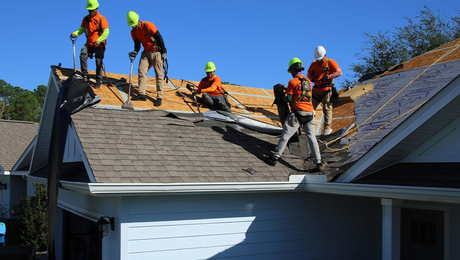Any recommendations, or links to previous discussions? Looking at a whole house remodel, and might remove the 66 gal electic and replace it with one or more tankless.
Do it right, or do it twice.
Any recommendations, or links to previous discussions? Looking at a whole house remodel, and might remove the 66 gal electic and replace it with one or more tankless.
Do it right, or do it twice.

Listeners write in about haunted pipes and building-science tomes, and they ask questions about roof venting and roof leaks.

"I have learned so much thanks to the searchable articles on the FHB website. I can confidently say that I expect to be a life-long subscriber." - M.K.
Get home building tips, offers, and expert advice in your inbox
Fine Homebuilding
Get home building tips, offers, and expert advice in your inbox
© 2024 Active Interest Media. All rights reserved.
Fine Homebuilding receives a commission for items purchased through links on this site, including Amazon Associates and other affiliate advertising programs.
Get home building tips, offers, and expert advice in your inbox
Become a member and get instant access to thousands of videos, how-tos, tool reviews, and design features.
Start Your Free TrialGet complete site access to expert advice, how-to videos, Code Check, and more, plus the print magazine.
Already a member? Log in
Replies
I'm a fan of the "on demand" tankless heaters. I've seen several in action and everybody seems real happy with them. I know Rinnai makes one and I think that Bosch does as well, but might be wrong.
Gas or electric? Are you aware that there are lifestyle changes involved unless you go with a high end unit? Look at the temp rise. Most of the numbers are deceiving unless you know how to interpret them. Will you be running a new gasline? If it is gas be sure to include the new gas line and the venting.
The house is all electric, although we may add a propane tank.Do it right, or do it twice.
On the topic of in-line and tankless water heaters, I'm not entirely sure what the difference is but this might not be important, I have always worried about any negative effects that hard water might have on these units. Seems to me that the higher energy density and smaller spaces around the heating elements or exchangers of these units, compared to conventional tank type water heaters, might increase susceptibility to lime fouling. I hear some of these units might come with methods of "blowing off" deposits, I know some steam generators come with these, but I have my doubts as to the long term effectiveness of these devices.
I like the idea of saving money long term by largely eliminating standby heat loss associated with water storage but worry that I could see any savings go down the drain if the tankless unit failed prematurely due to hard water or other design, implementation, problems. Tank type water heaters, both gas and electric, have a history of reliability if not superior efficiency. Do you think that tankless water heaters can be as accepting of varying water conditions, without a great amount of filtration and treatment, and still remain long lived? Or am I better off going with the old reliable, tank type, models?
Good point. We have hard water here, so I plan on installing one of those magnetic devices in front of the heater.
;)
Whenever you are asked if you can do a job, tell'em 'Certainly I can!' then get busy and find out how to do it. T. Roosevelt
"We have hard water here, so I plan on installing one of those magnetic devices in front of the heater."
The only water that will soften is that of the seller when he uses the profit to buy a real one for himself.
That was a joke Bill.Do it right, or do it twice.
make sure your electric line to the house is big enough then. along with your breaker box and other service line components. to upgrade entire line to transformer is common with these. have seen where even the transformer had to be changed. cover yer butt.
Good point. I don't know too much about these in-line models plumbing and reliability wise but I got a HO mad at me one time when they wanted me to run a circuit to one. It drew, nameplate, 100A and they only had 150A service. Their heat pump alone drew close to 60A and this being Florida the loads were sure to conflict. An electric stove and drier just reinforced the problem. I recommended that they not use this unit without a service upgrade. The cost and consequences of adding a 100 load had been entirely overlooked.
thanks for the validation
I have helped install several of the Bosch AquaStar ( think thats the name) with a gas fitter pal and had no problems.These were running on propane from large tanks with dual stage regulators and worked great up in the bush of the Kootenays.
We had a problem with one place but that was caused by lack of water flow from old well system, once that was sorted again no problem.
The other thing that impressed me, was the lack of call backs, in the 3 years after they were installed, although I believe you need to do minimum annual maintenance.
So long from Grand Forks, gtw